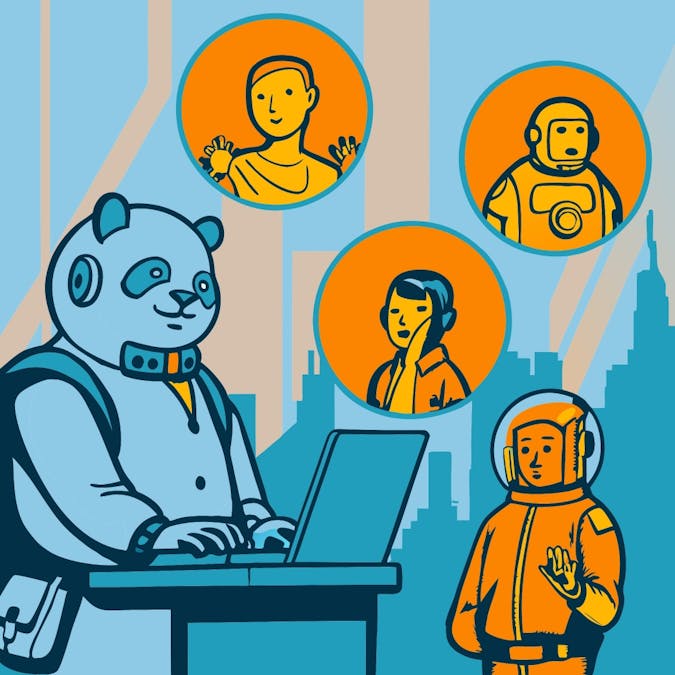How AI Co-Pilots Will Reshape Tech Support in 2025

Tech support is entering a new era—and AI is leading the charge. In 2025, tools like ChatGPT and Microsoft Copilot are transforming how businesses deliver support, offering faster responses, smarter diagnostics, and 24/7 availability.
Imagine resolving tech issues instantly—with seamless AI support that works quietly in the background to keep your business running smoothly. These co-pilots are changing expectations and unlocking new levels of customer satisfaction.
As this technology becomes more powerful and accessible, it’s no longer a question of if you should adopt it—but how soon. In this article, we’ll explore why AI co-pilots are quickly becoming essential in modern tech support—and how your business can benefit from embracing them.
The Evolution of Tech Support Practices
As demands on tech support have grown, the methods used to meet these challenges have evolved. The emergence of AI co-pilots marks the latest chapter in that journey.
Traditional Tech Support Challenges
Long wait times, inconsistent responses, and difficulty managing high volumes of requests have plagued traditional tech support. Diagnosing complex issues often relied heavily on vague user descriptions, leading to slow or inaccurate resolutions.
These limitations, while understandable in human-centered support, have left room for improvement—especially in today’s fast-paced digital world.
Rise of AI in Tech Support
AI offers a transformative solution. With the ability to instantly access and analyze vast datasets, AI co-pilots can learn, adapt, and respond with precision.
They streamline diagnostics, predict issues before they arise, and support users around the clock. This shift empowers tech teams to focus on strategic problems while automation handles the repetitive tasks.
What Are AI Co-Pilots?
AI co-pilots are intelligent digital assistants that enhance human tech support. Using machine learning and natural language processing, they engage in fluid, helpful conversations and continuously improve over time.
Key Characteristics of AI Co-Pilots
- Natural language understanding: They can interpret and respond like a human would.
- Self-improving: Learning from interactions to refine their performance.
- 24/7 availability: Providing non-stop support across time zones.
Examples: ChatGPT and Microsoft Copilot
ChatGPT handles general troubleshooting, content help, and real-time Q&A with natural ease. Microsoft Copilot, deeply integrated into Office and Windows, supports users by automating tasks and suggesting intelligent actions.
These tools are becoming vital assets in delivering scalable, reliable support.
Enhancing Speed and Efficiency with AI
In a support environment, speed matters—and AI co-pilots deliver.
Faster Response Times
AI instantly responds to user queries, eliminating wait times. Tools like ChatGPT provide help the moment it’s needed, bypassing queues and improving satisfaction.
Smarter Diagnostics
AI systems analyze system behavior, user history, and error patterns to quickly identify issues. They often detect and resolve problems before a human agent would even begin.
The Impact of 24/7 AI Support
AI never sleeps. That’s a game-changer.
Always Available, Globally
Round-the-clock support ensures customers get help anytime—regardless of time zone. This global accessibility leads to faster resolutions and happier users.
Handling Diverse Queries
From simple password resets to complex bugs, AI co-pilots handle a wide range of support requests. Advanced models also understand multiple languages, improving accessibility for global customers.
Microsoft’s Customer Service Transformation with Copilot
In 2025, Microsoft integrated Copilot into its Dynamics 365 Customer Service platform to enhance support operations. A study involving 6,500 agents using Copilot compared to a control group of 5,000 agents revealed significant improvements:
- 12% Reduction in Case Resolution Time: Agents equipped with Copilot resolved customer issues more swiftly, enhancing overall efficiency.
- Increased Autonomy: 10% of cases that typically required collaboration were resolved independently by agents using Copilot, reducing the need for escalations and improving customer satisfaction.
Challenges of Implementing AI Co-Pilots
While AI co-pilots offer significant advantages, their implementation comes with several challenges that organizations must address:
Data Privacy & Ethics
AI systems process vast amounts of sensitive data, necessitating robust security measures to prevent breaches and ensure compliance with regulations like GDPR. Additionally, there's a need to address ethical concerns, such as potential biases in AI algorithms, to maintain fairness and transparency in customer interactions.
Human Oversight Still Matters
Despite advancements, AI cannot replicate human intuition and empathy. Complex or emotionally charged situations often require human intervention to provide nuanced understanding and personalized support, ensuring customer satisfaction and trust.
Costs & Training
Implementing AI co-pilots involves significant upfront investments in technology and infrastructure. Moreover, staff must be trained to work alongside AI tools, requiring time and resources to develop the necessary skills and adapt to new workflows.
Technical Integration Challenges
Integrating AI co-pilots with existing systems can be complex, especially when dealing with legacy infrastructure. Ensuring compatibility and seamless data flow between AI tools and current platforms is crucial for effective implementation.
Potential for Miscommunication
AI may struggle with understanding context or handling ambiguous queries, leading to miscommunication. This limitation can result in customer frustration if not properly managed, highlighting the importance of clear escalation paths to human agents when necessary.
Employee Resistance
Introducing AI tools can lead to apprehension among employees, stemming from fears of job displacement or increased surveillance. Addressing these concerns through transparent communication and involving staff in the implementation process can facilitate smoother adoption.
The Future of Tech Support
AI co-pilots are not a passing trend—they’re the future of efficient, scalable support.
Proactive Support with Predictive AI
Future systems will solve problems before users even report them. By analyzing historical trends, AI will predict failures and take preemptive action.
Integration with IoT & AR
AI combined with smart devices and augmented reality will enable even more seamless, interactive support—offering real-time fixes or visual instructions.
Evolving Roles for Human Agents
As AI handles more repetitive work, human agents will shift to higher-level tasks, strategy, and customer care.
Final Thoughts
AI co-pilots are redefining what tech support looks like in 2025. By improving speed, diagnostics, and global accessibility, they’re setting new standards in service.
Whether you're a solo operator or running a large team, now’s the time to embrace AI tools like ChatGPT and Microsoft Copilot. The result? Happier customers, more efficient teams, and a competitive edge in a tech-driven world.




